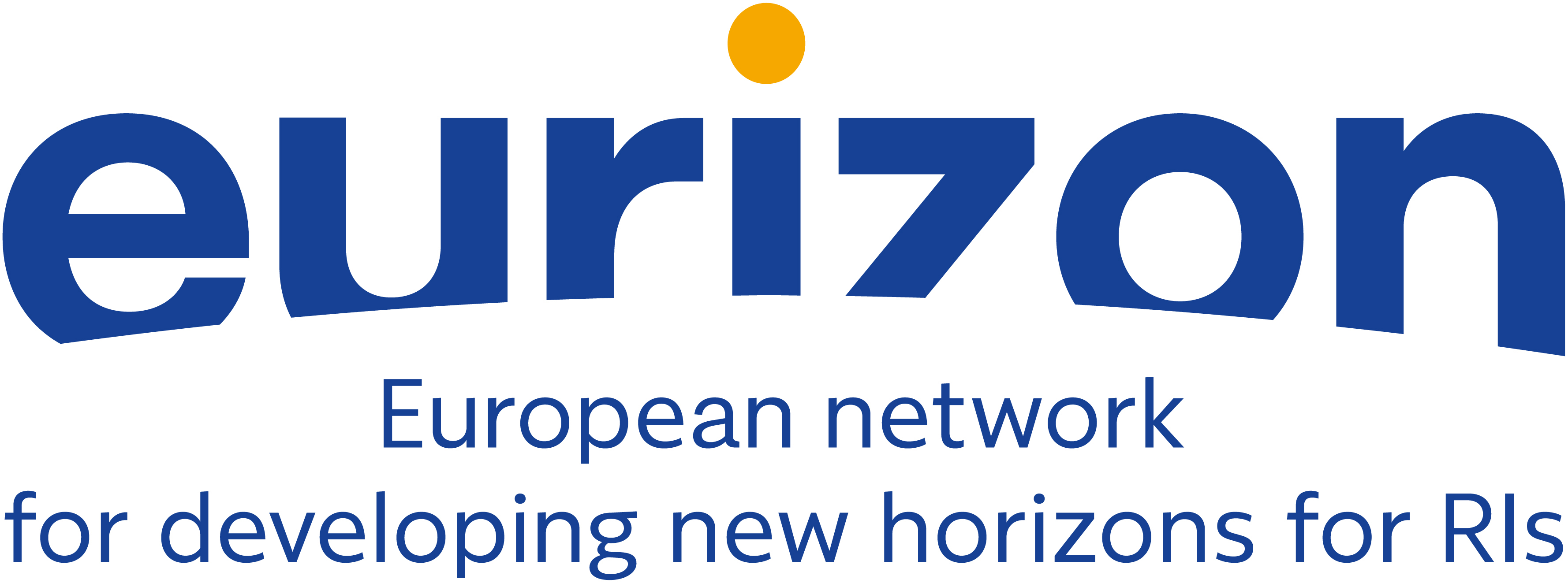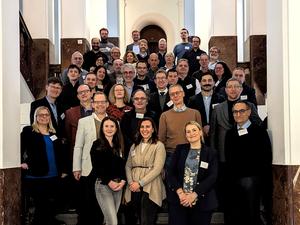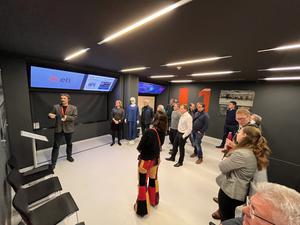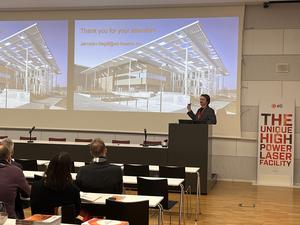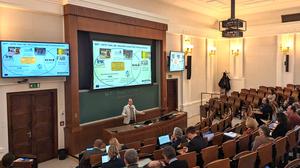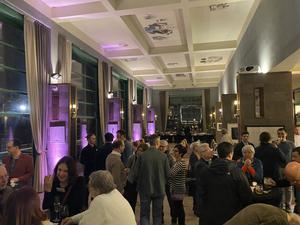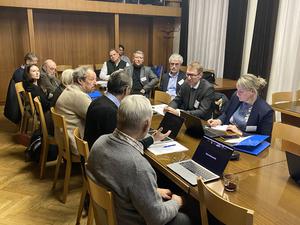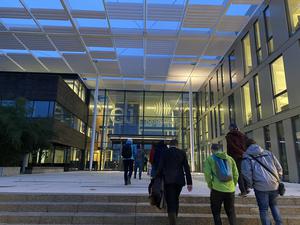Technical collaborations come to an end, while support measures for Ukraine will still be ongoing to April 2025
02 February 2024
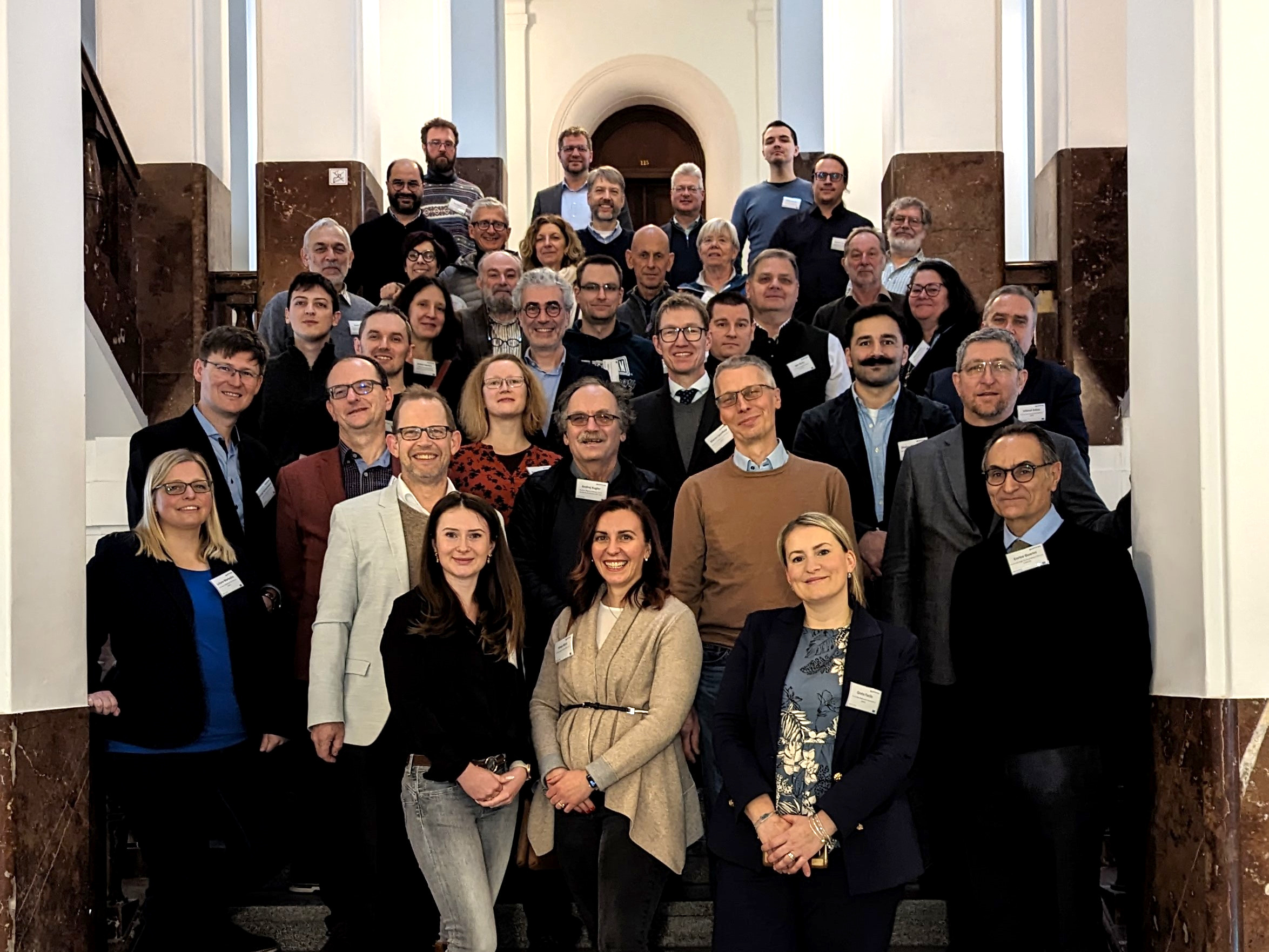
Photo: David Šebek, Nuclear Physics Institute of CAS
EURIZON project meeting in Prague:
Technical collaborations come to an end, while support measures for Ukraine will still be ongoing to April 2025.
From 18 to 19 January 2024, a final EURIZON project meeting took place in Prague. The community was hosted at the Faculty of Nuclear Sciences and Physical Engineerig (FNSPE) of the Czech Technical University (CTU) – beautifully located in the centre of the city, close to the river of Vltava. The FNSPE is a close partner of EURIZON consortium member Nuclear Physics institute (NPI CAS), and FNSPE is also scientifically involved in one of the tasks with NPI.
Almost one hundred participants took part in the meeting, the majority of the attendants chose the virtual participation, while roughly 50 came to Prague to attend offline, among them the Policy Officer from the EC – REA, Pierre Quertenmont, and the chairman of the external advisory board (SAC), Jean Moulin.
This annual meeting is called “final meeting”: after 48 months of project duration, the six scientific-technical work packages have finished their work programmes. On the first day of the meeting, the work package leaders of these WPs presented the results of four years of collaboration, - a collaboration that not only suffered from the outbreak of the corona virus pandemic at the beginning of the project duration. The outbreak of a terrible war against Ukraine in February 2022 almost led to an immediate termination of the project in the middle of its lifetime. It was specifically due to an enormous and long-lasting effort of the entire consortium, its European part respectively, that the project could be kept alive at all. Thanks to the European Commission, the proposed project adaptation with an adjusted work programme and a newly introduced set of specific coordination and support measures for Ukraine, has been accepted. The WP-leaders have impressively shown in Prague how they have managed to adapt the six scientific programmes and to deliver excellent results: finest, new cutting-edge technologies for European RI and ESFRI landmarks and for RI upgrade projects in the fields of nuclear physics and high-energy physics experiments, neutron and synchrotron sources, high-power lasers, such as:
- Develop a prototype of a high-brilliance and high-flux cold neutron source utilizing high-aspect ratio rectangular para-hydrogen moderators
- Prepare a Silicon Tracking System for the CBM experiment at FAIR
- Develop a Multi Blade neutron detector for the ESS test beam line
- Work out a generic CDR for fully automated X-ray Absorption Spectroscopy beamlines for 4th generation synchrotron radiation sources
- Develop and design a Particle Identification system for a future flavour factory detector
- Develop a breakthrough metrology sensor to be inserted at the attenuated focus of ultra-short laser systems
The meeting was also dedicated to look ahead: there are 15 months of additional project duration, granted by the European Commission, to allow to implement a specific set of coordination and support measures for Ukraine. Its key element – the EURIZON Fellowship Programme for Ukraine – was launched in 2023 collecting more than 780 applications from Ukrainian teams. Whilst the monumental evaluation effort is turning to an end, the first shift of selected fellows in Ukraine have started their research projects on February 1st, 2024. A small selection of these first projects to be funded have been presented by their Principal Investigators at the meeting in Prague.
The WP9 TRAIN and WP10 LTS parallel session of the meeting addressed critical aspects about the sustainability of RIs in Ukraine. In the first session, the Ukrainian EURIZON fellows of UNIMIB´s EMMRI master program at the University of Milano-Bicocca, shared testimonies of how the war triggered by Russia affected their work and lives. They emphasized how the training opportunity provided through the project is instrumental in shaping their careers. The second session featured an open discussion among Ukrainian scientists and Research Infrastructures representatives, focusing on exploring ways how European scientists and institutions can contribute to enhancing Ukraine's scientific capacity and to supporting the Ukrainian RIs operations.
The agenda of annual meeting was rounded off by a visit to the close-by ELI-ERIC (ELI-Beamlines) consortium partner in Dolní Břežany, including a tour through the facilities, on the eve of the meeting, 17 January.
